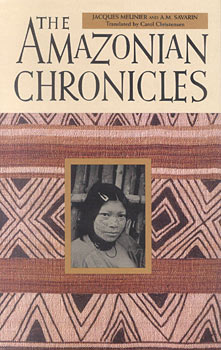
BACK COVER #
Unlike the problems of starvation in Africa, upheaval in Eastern Europe, conflict in the Middle East, discrimination against blacks, or even the slaughter of baby seals, the genocide occurring in the Amazon does not attract much public outcry. . . . The events in Amazonia seem to be no more than the operation of the law of the jungle. And then, compared to what happened in Vietnam, the massacre of a few primatives scattered throughout South America hardly seems to have more than sentimental importance. . . . In fact, an entire segment of humanity is moving toward destruction, and the international audience--which calls for justice in many less urgent cases--is watching as unconcernedly as if it were an ordinary event.Entire communities forced to abandon their lands, children kidnapped, people treated barbarously, degraded mentally and physically, punitive expeditions launched against them. . . . With genocide, with racism, we confront horror itself. We have spoken of the fragility of traditional societies, of the blind intolerance of our civilization toward the Indians, of the lack of understanding that has led the Amazonians--white, creole, and mestizo--to the organized extermination of the Indians. But there is one question that haunts us, that emerges through the pages of this case we have made like the recurring notes of a flute, forcing us to weigh an unpleasnt possibility: aren't we just as guilty of exploiting the Indians, aren't we indulging in a lot of useless discussion? But when we use the word genocide, we have no intention of turning ourselves into defenders of a lost cause; we do not see our roles as charity and moralism. We are not writing off the Indians; we do not believe that genocide should be considered an inevitable calamity.
The general public has the right to know. The rights and the duty. To accept this atrocity, to allow these terrible crimes to be committed, is to become an accomplice in them. . . .
In our view, the salvation of the Indian must begin here and now.
-- Jacques Meunier and A.M. Savarin


